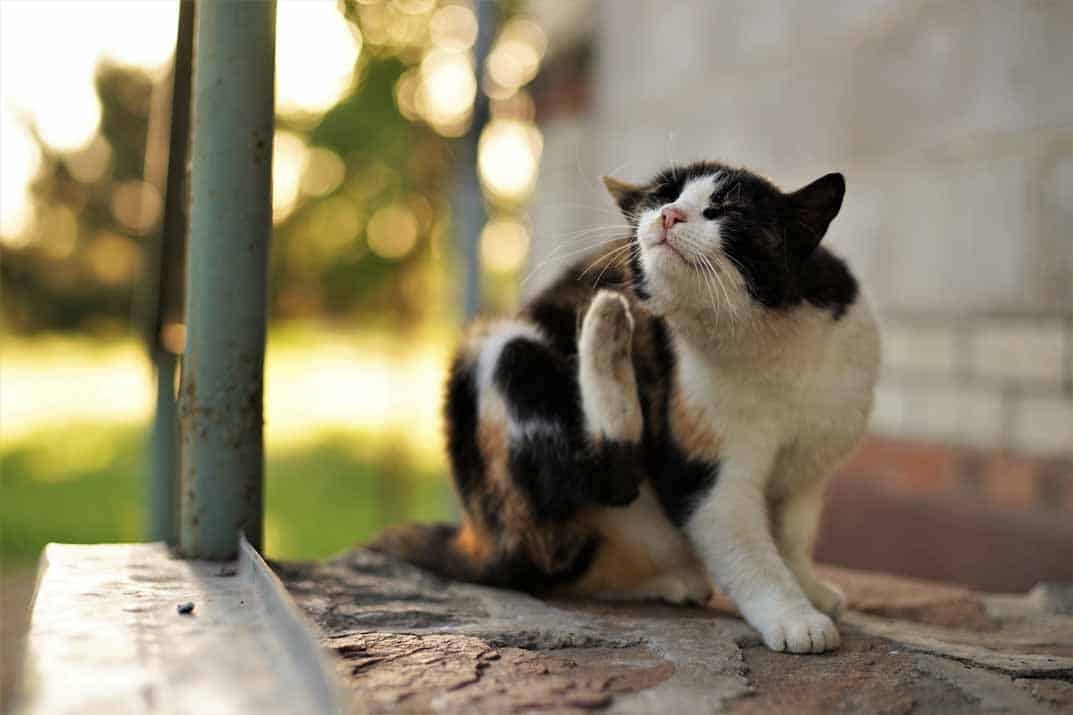Living in Raleigh, NC, means we get to enjoy distinct seasons—even if our winters are milder than those in the northern states. But for fleas, each season brings its own opportunities to thrive. That’s why at Wake Pest, we believe a one-size-fits-all approach to flea prevention often falls short. Different times of the year require different strategies to keep your pets safe.
Spring: Early Action Sets the Tone
In spring, temperatures start to rise, and fleas begin emerging from their pupal stage. This is the season to start paying extra attention, especially if you let your pets roam outside. Here are a few things to keep in mind:
- Check Last Year’s Prevention: If you slacked on flea prevention during the winter, now’s the time to step it up. Fleas can remain dormant in cocoons, then hatch as soon as the weather warms.
- Grooming Sessions: Brush and bathe your pet regularly to spot any early signs of fleas. A flea comb is especially useful around the neck and tail area.
- Yard Maintenance: Remove leaf litter and trim back any overgrown vegetation where fleas could hide, especially if stray cats or wildlife frequent your yard.
According to some veterinary surveys, fleas can reproduce at temperatures as low as 50°F. In Raleigh, we often hit those temps even in March. Spring is the ideal time for a professional inspection or treatment because it helps you catch any new infestation before it explodes.
Summer: Peak Flea Season
Summer in North Carolina is hot and humid—perfect conditions for fleas to multiply at a rapid pace. If you have an outdoor cat or a dog that spends a lot of time in the yard or visiting local parks, be extra vigilant.
Here’s how you can keep fleas in check during the summer:
- Consistent Preventative Treatments: Whether you use a monthly topical treatment or a prescription oral medication, summer is not the time to skip doses. Mark your calendar so you don’t forget.
- Frequent Pet Checks: Do a quick flea comb session or body check at least once a week, more if your pet is scratching.
- Stay On Top of Cleaning: Vacuum carpets, wash pet bedding, and clean couches and cushions regularly to remove eggs and larvae.
Stats suggest fleas can go from egg to adult in as little as two weeks under hot, humid conditions. That means one missed treatment could lead to a full-blown infestation before you know it. If you see even a few fleas on your pet, consider contacting professionals (like us at Wake Pest) to ensure you deal with every life stage of the flea.
Fall: The Overlooked Danger Season
Many people mistakenly believe that when the weather starts cooling down, fleas become less of a concern. However, in Raleigh, autumn can still be pretty warm and humid, giving fleas a chance to stick around and remain active well into October or November.
To safeguard against fall fleas:
- Keep Using Prevention: Continue whatever flea preventative you’ve been using during summer. Don’t stop until your vet gives the all-clear.
- Watch for Hitchhikers: Falling leaves and yard debris can be an excellent hiding spot for flea eggs and larvae. Keep your yard clear and well-maintained.
- Indoor Vigilance: If nights are chilly, your pet may spend more time indoors, potentially shedding flea eggs into your carpets and furniture. Vacuum frequently and dispose of vacuum bags outside if possible.
Fall is also an excellent time to schedule a professional check-up or a preventative treatment. By eliminating fleas in the fall, you’re less likely to have a lingering population that survives into the winter. As we always say at Wake Pest, it’s easier to prevent than to cure.
Winter: Don’t Let Your Guard Down
While fleas tend to slow down in colder weather, that doesn’t mean they disappear entirely. Our winters in Raleigh can be mild, offering just enough warmth for fleas to survive, especially inside heated homes.
Keep these tips in mind during winter:
- Indoor Comfort for Fleas: Because your furnace keeps the house cozy, fleas can remain active indoors. If your pet has fleas, the population can continue to grow in carpets and upholstery despite freezing temperatures outside.
- Year-Round Prevention: Ask your vet if a 12-month flea preventative is right for your pets. Many local vets recommend year-round treatment, especially in the Southeast.
- Watch for Pupal Surprises: Flea pupae can stay dormant for weeks or months. A slight uptick in indoor temperature or vibration can cause them to hatch, leading to what feels like a “random” winter outbreak.
One important statistic: some studies show that around 60% of fleas can survive winter if they’re already indoors. That’s significant enough to warrant ongoing vigilance. Even if you think fleas aren’t active, they could be waiting in the pupal stage, ready to reemerge when conditions become favorable.
Working with a Professional Partner
Seasonal changes call for different flea control strategies, but you don’t have to do it alone. At Wake Pest, we’re familiar with Raleigh’s seasonal shifts, and we tailor our services to target flea activity at the right time. For instance, we might focus on yard treatments in spring and summer, when fleas are breeding outdoors, and then shift to indoor strategies come fall and winter.
Our treatments often include:
- Inspection: We look for flea hotspots both inside and outside your home.
- Targeted Applications: Using pet-safe products, we treat carpets, furniture, and specific areas in your yard where fleas may breed.
- Follow-Up Visits: Flea eggs hatch in cycles. We schedule follow-up treatments or checks to ensure we don’t miss emerging generations.
- Guidance on Pet Care: While we handle the environment, we also give tips on the best flea preventatives for your pets. We’re not vets, but we can share tried-and-true local recommendations.
Pet Health First
We can’t stress enough that protecting your pet from fleas is about more than preventing itching. Fleas can carry tapeworms, cause Flea Allergy Dermatitis, and in extreme cases, lead to anemia in smaller or younger animals. Talk to your veterinarian about the best preventative medication for your pet. With multiple pets in a home, it’s important to treat them all simultaneously—fleas don’t play favorites, and they’ll just hop from one animal to another if not all are protected.
If your dog loves to run around Lake Johnson Park or if your cat likes sunbathing on the screened-in porch, be mindful that fleas could be present in those spaces. Regularly checking your pet’s fur, along with routine vacuuming and yard maintenance, helps minimize the risks. Good habits, combined with professional oversight, form a strong defense against fleas in every season.
Our Commitment to Raleigh Pet Owners
At Wake Pest, we’re proud to serve the Raleigh community. We know how much your pets mean to you—they’re family. By tailoring our flea control strategies to the unique challenges of each season, we aim to provide year-round peace of mind. Whether you’re dealing with an active flea infestation in the peak of summer or just wanting to take preventive measures during a mild winter, we’re here to help.
Don’t let fleas gain a foothold at any time of the year. Make seasonal flea control part of your routine. Check your pet’s fur often, keep your house tidy, and schedule regular check-ins if you have any suspicion that fleas might be lurking. If you need a hand, give us a call at Wake Pest. Together, we’ll ensure your pets enjoy every season without the constant annoyance of flea bites and the potential health risks these pests bring.

